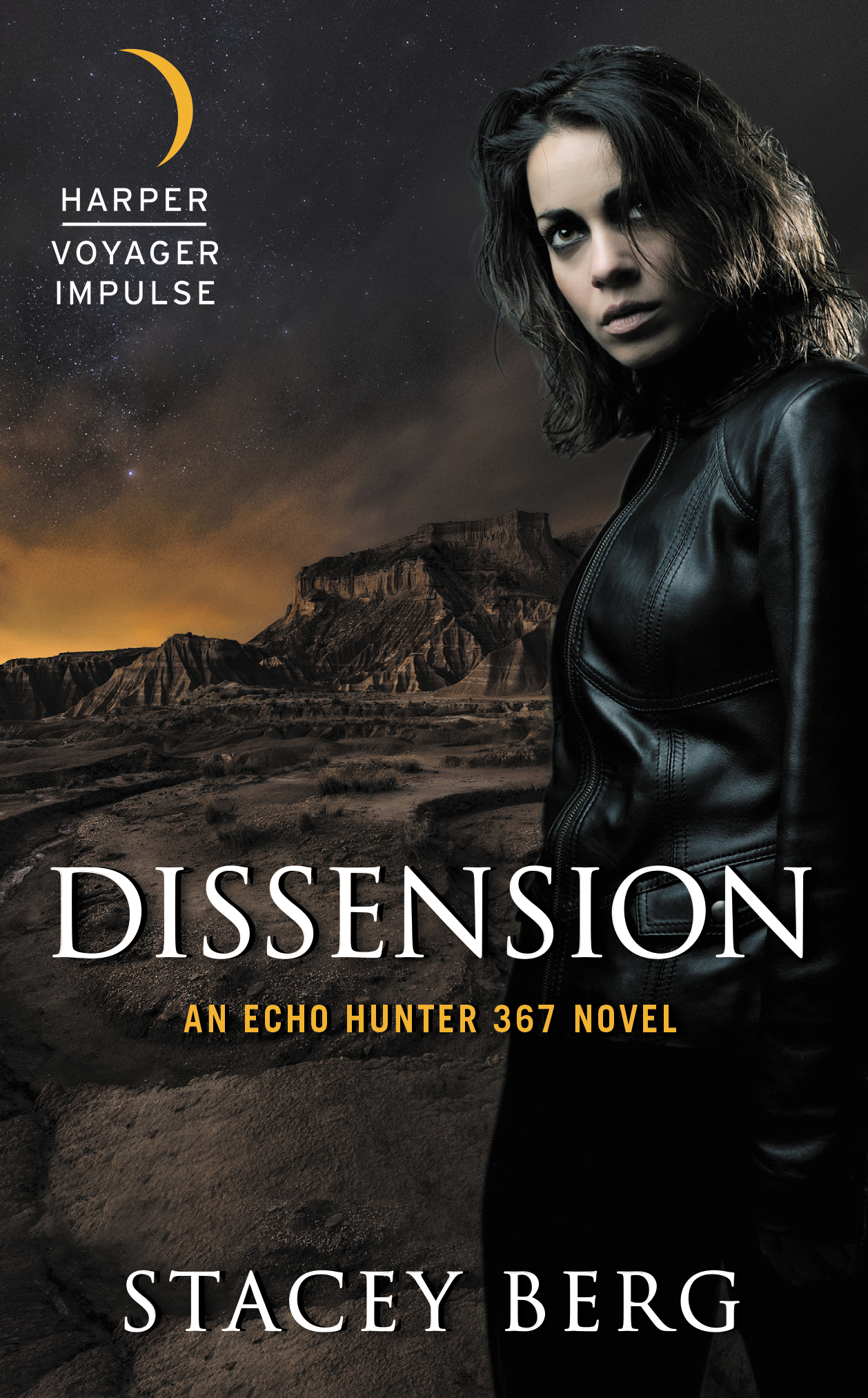 Stacey Berg is joining us today with her novel Dissension. Here’s the publisher’s description:
Stacey Berg is joining us today with her novel Dissension. Here’s the publisher’s description:
For four hundred years, the Church has led the remnants of humanity as they struggle for survival in the last inhabited city. Echo Hunter 367 is exactly what the Church created her to be: loyal, obedient, lethal. A clone who shouldn’t care about anything but her duty. Who shouldn’t be able to.
When rebellious citizens challenge the Church’s authority, it is Echo’s duty to hunt them down before civil war can tumble the city back into the dark. But Echo hides a deadly secret: doubt. And when Echo’s mission leads her to Lia, a rebel leader who has a secret of her own, Echo is forced to face that doubt. For Lia holds the key to the city’s survival, and Echo must choose between the woman she loves and the purpose she was born to fulfill.
What’s Stacey’s favorite bit?

STACEY BERG
My favorite bit of Dissension is a look characters exchange at the end of the climactic scene when—no, wait. That is my favorite bit, but I can’t explain why without spoiling the story. But I love the end of the opening scene almost as much, and that I can talk about. There are only two characters, alone in a wasteland; one is lost, and the other has come to find her. We know the lost girl has been hurt in a fall from a cliff; we think the searcher has come to her rescue.
[The girl’s] eyes came back to Hunter’s. “It doesn’t hurt. I don’t feel anything.”
“I know.” Hunter edged around a little. “Here, let me help you sit up.” The girl was a boneless weight against her, arms dangling, a handful of sand trickling between limp fingers as Hunter knelt behind her, holding her close. “It’s all right, Ela. You did well.” The lie wouldn’t hurt anything now.
The girl’s head lolled back against Hunter’s shoulder, eyes searching her face as if trying to focus across a great distance. Her whisper was barely audible. “Which one are you?”
“Echo.”
“Number five, like me.”
“Yes, Ela.” She eased one palm around to cup the back of the girl’s head, the other gently cradling her chin. “Ready?”
The girl’s nod was only the barest motion between her hands. Hunter let her lips rest against the girl’s dusty hair for a short moment. She felt the girl’s mouth move in a smile against her fingers.
Then, with a swift and practiced motion, Hunter snapped her neck.
I love this bit because of the way it subverts the reader’s expectations. It sets up the tone of the whole rest of the book, without seeming to work too hard. The page or two before has introduced my main character, Hunter, and showed her embodying her name, calmly tracking a student lost in a desert training exercise. Now, as the dangers of night time close in, she’s finally found her. At first Hunter seems almost gentle; not only in the way she physically handles the hurt girl, but also in her attempts to comfort her, even lying to her to make her feel better. Then there’s the passing mystery in the exchange of names: why does the girl ask “which one”; what does it mean to be “number five”? And finally, we feel the intimacy of the dusty kiss, and then gut-punch that follows. The conflict between these two actions is a physical manifestation of the internal conflict that tortures Hunter from here right to the end of the book.
This is just the set-up I wanted to pull my readers right into the story, and I think it works. That’s why it’s my favorite bit.
LINKS:
BIO:
Stacey Berg is a medical researcher who writes speculative fiction. Her work as a physician-scientist provides the inspiration for many of her stories. She lives with her wife in Houston and is a member of the Writers’ League of Texas. When she’s not writing, she practices kung fu and runs half marathons.
